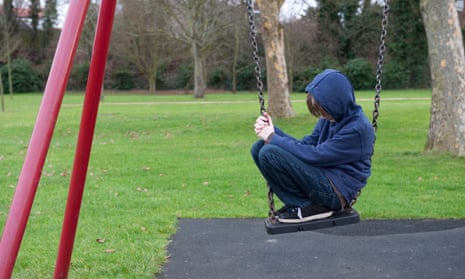Yet another report has been published showing frightening levels of mental illness among children and young people in England. The figure now stands at about a quarter of a million. I have written before, downplaying the phenomenon, usually along the lines of “children have never had it so good” and pointing to the increase in child-centrism, the boons of technology and the growth in living standards for most.
I can’t keep my head in the sand any longer. Something is going seriously wrong. Owen Jones, in an article in this newspaper, recited the usual suspects – overcrowded and poor housing, poor diet, lack of exercise, family conflict, the stresses of poverty and lack of state support. I am dubious about most of these explanations, largely because such matters have long been with us without an accompanying crisis of mental illness.
My explanation is that our children are having their childhood stolen from them, and at some level they know it. They kick against this with rage and frustration. But it is important to note that this is a rise in mental illness, not unhappiness. They are different things. Mental illness is an unhappiness that is unsanctioned, denied essentially. It is unhappiness that does not know itself. It is unhappiness that arises from confusion and double standards. Why this confusion? Chiefly, it is down to the idea that achievement and competition are all important. There is nothing wrong with this as an ethos, but achievement of what? Competition for what? And when does it end?
In the world I grew up in, when mental illness among young people was largely unheard of, achievement, although desirable, was not considered particularly important. Many people from my very ordinary background didn’t pass any important exams. Few went to university. And it wasn’t thought a big deal, because it was recognised that not everyone could be outstanding or high achieving. It wasn’t a failure to get a job in a local shop or factory, find somewhere OK to live and have a couple of kids. It was normal and many people embraced it.
But things have changed in the world of societal expectation. The myth seems to have arisen that individual striving and effort will always get you what you want – money, status or a satisfying career. A few generations ago, we were more realistic. The class structure of society, and our own individual limitations – such things were acknowledged then – meant that few of us could hope to hit the heights. But it didn’t matter as long as we had a reasonable job, our community, our homes, our families. Expectations were in line with reality.
Now that middle-class aspirational values have seeped and bled everywhere, this is no longer the case. Not only are we told that we can do anything if we want to, but that we should. We must all become middle class, or count ourselves a failure. Competitive narcissism runs rampant.
It is bad enough for those who come from a background that invests in this – the ambitious middle class. To get sucked in from a culture that does not invest in it, or have much of a chance in the race – well, no wonder some children are either rejecting education, or experiencing mental illnesses.
Achievement is healthy, but we don’t all have to hit the heights to feel good about ourselves. Society is made up of mostly low- or medium-achievers, and to make us feel ashamed of who we are is a great burden. Success should be redefined as achieving what you feel capable of, and what lies within the realm of possibility – not what society tells you that you must achieve in order to conform to a fantasy that, for most, only exists in glossy magazines and university prospectuses.

Comments (…)
Sign in or create your Guardian account to join the discussion